[Photos] China’s young generation dancing to the break
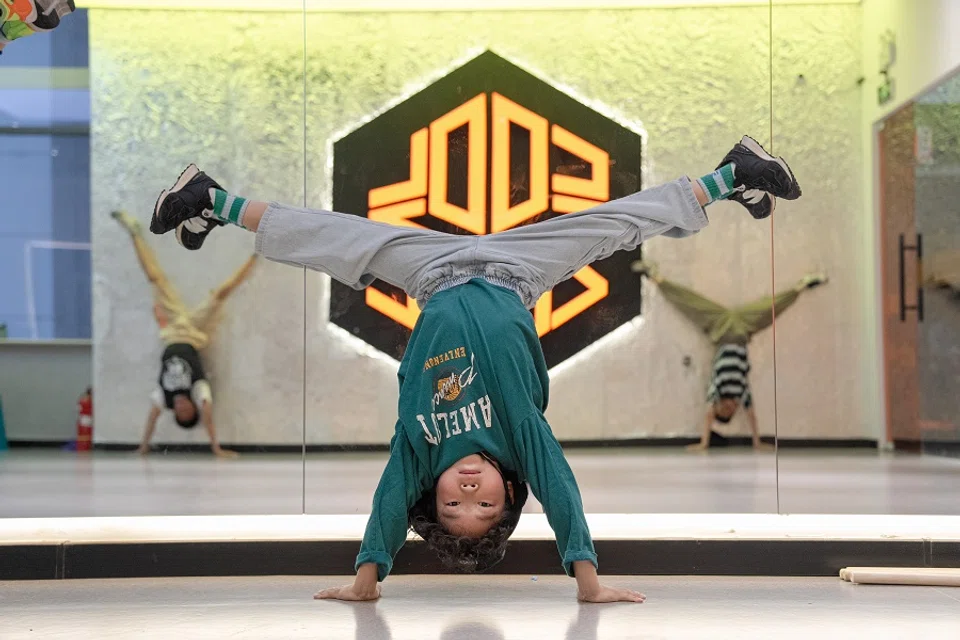
Breaking, a dance sport debuting at this year’s summer Olympics, has captured the hearts of many young Chinese. While some see it as a way of training the body and mind, others appreciate it for the art form that it is. Photographer Zhou Na meets three young people brimming with passion for breaking.
(Photos: Zhou Na)
Zhuangzhuang’s mother, Ran Xiaoqi, was born in the 1980s. When she was in high school, she wanted to learn street dance, but her parents stopped her. Now, they take turns to send and pick their grandson up from breaking class.
Zhuangzhuang, 8, Beijing
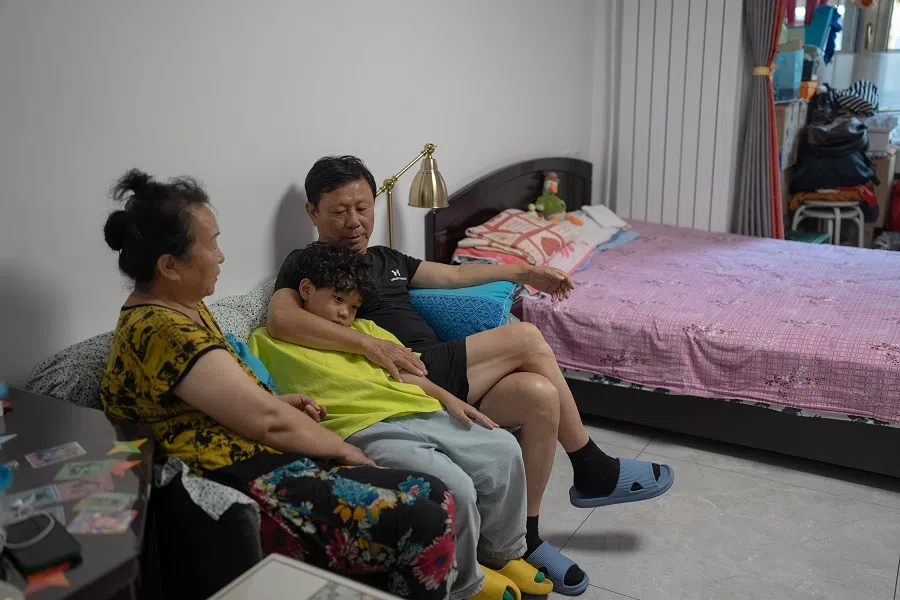
For Zhuangzhuang (real name Jin Chengmin) and his family, breaking ticks many boxes: it is an unfulfilled dream of his mum’s from her youth; it makes him physically stronger; it is easier to show his attainment in breaking than in music; and most importantly, he likes it.
From taking classes once a week in the beginning, Zhuangzhuang has progressed to putting in about 15 hours of practice a week. When he was three and a half years old, he used to be the youngest student in his class. In his present advanced breaking class, he is also the youngest at eight years of age. As Zhuangzhuang is showing aptitude for breaking, his parents are investing more time and money, and expecting more from him.
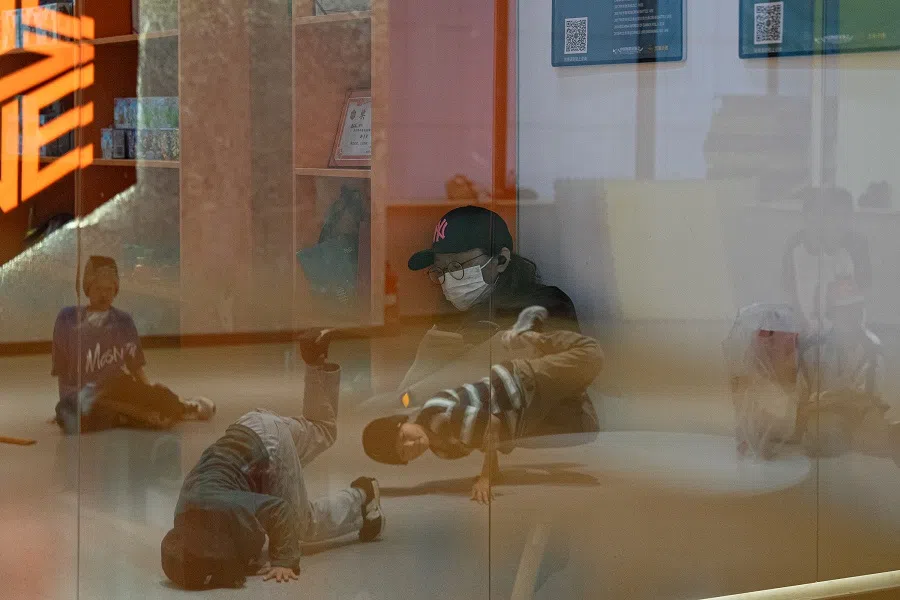
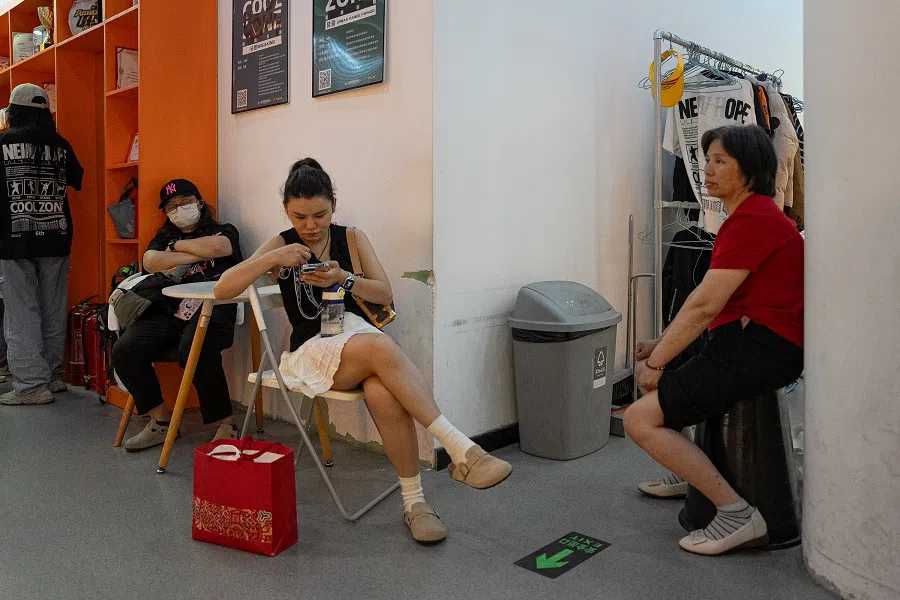
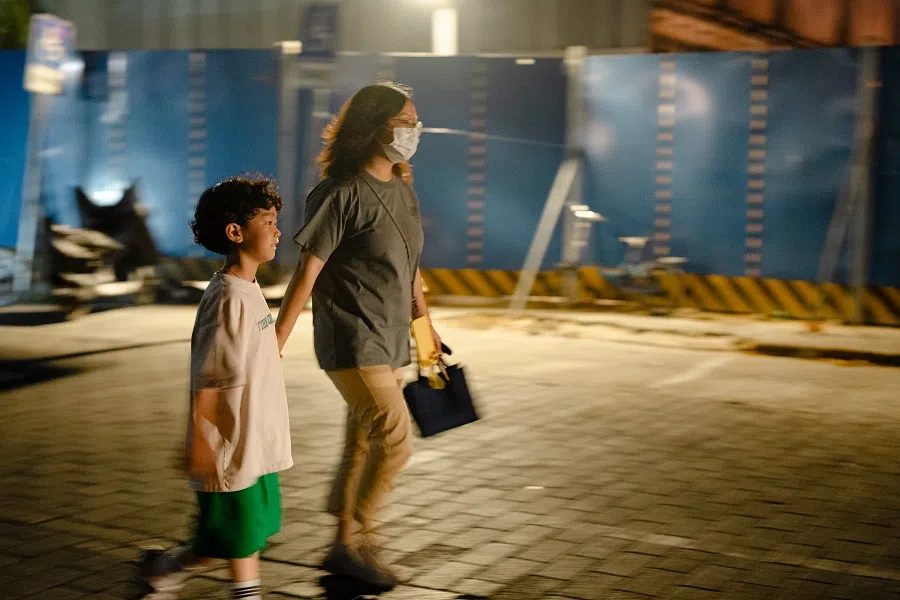
When Ran was in high school, Korean popular culture was all the rage in China and she fell in love with street dance and wanted to learn it. But her parents did not have a good impression of street dance and forbade her from doing so.
When it was time to pick a hobby for Zhuangzhuang, Ran decisively chose street dance. By then, her parents’ impression of street dance had changed greatly — in 2016, the same year that Zhuangzhuang was born, the International Olympic Committee (IOC) decided to add breaking to the list of competitive events for the 2018 Youth Olympic Games.
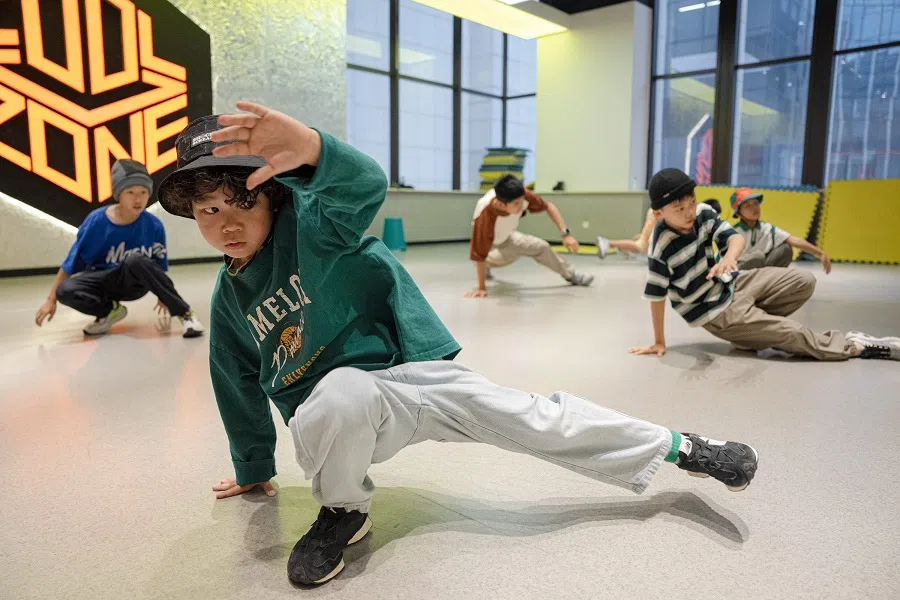
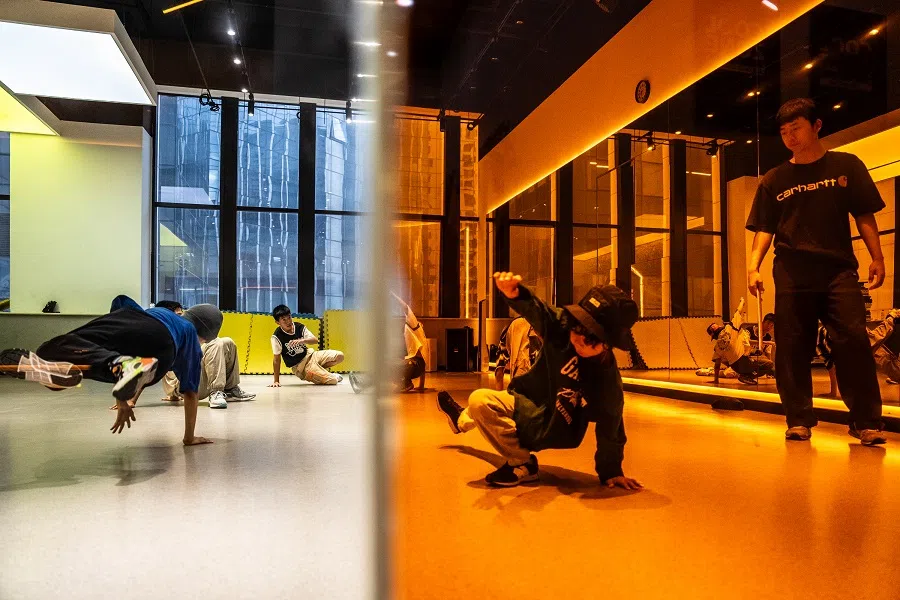
After a few years of dancing, breaking became an integral part of Zhuangzhuang’s daily routine. Only once did he cry and refuse to go to class. This was after he advanced to a higher level, which was significantly harder, and felt too stressed.
At that time, the pandemic controls in China were at their most stringent, so the dance studio closed its doors temporarily for a few months. When Zhuangzhuang started asking Ran when he could resume dance classes, she realised that she had to change her approach. She explained, “I can’t be like before — it leaves him with too little breathing space.”
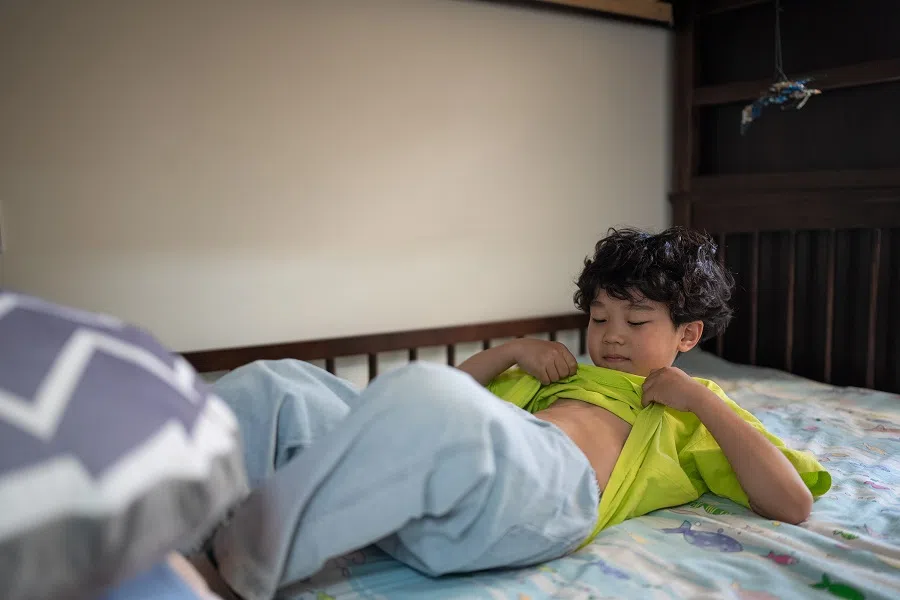
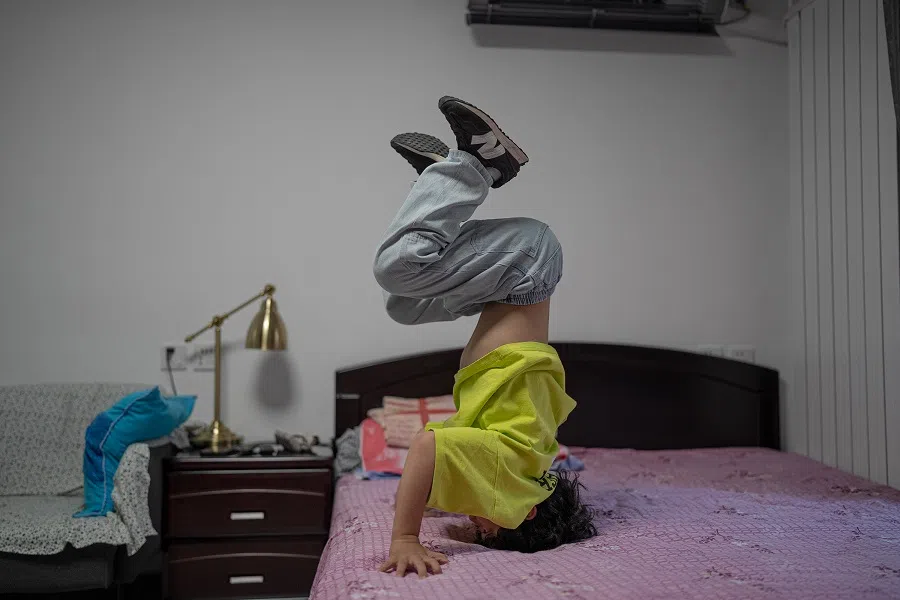
To Ran, breaking has given Zhuangzhuang a stronger physique and more confidence. It has also given him many opportunities to showcase his abilities.
At the end of last year, he participated in the dance competition Street Dance of China and was very excited to meet his idol, Zhang Yixing (张艺兴, known as Lay Zhang). As for Zhuangzhuang’s future, Ran feels that it is too early to make plans, but they would support him if he decides to make a career out of breaking.
“I can use my secret moves to catch my opponent off guard during battles.” — Zhuangzhuang
At 7.30am on the Saturday right after school exams ended, Ran took Zhuangzhuang to Changsha in Hunan province on the high-speed train even though his school holidays had not started. Ran’s mother went along as well to look after him.
In Changsha, Zhuangzhuang was put through even more intensive dance training at a cost of 9,800 RMB (US$1,352). Over the ten days, he trained from 1 pm to about 9 pm each day. Ran used up almost all her annual leave to accompany him on the trip.
Prior to this, Zhuangzhuang attended intensive training in Harbin during the May Day holidays. He would most probably be attending another round of intensive training during the National Day holidays in October.
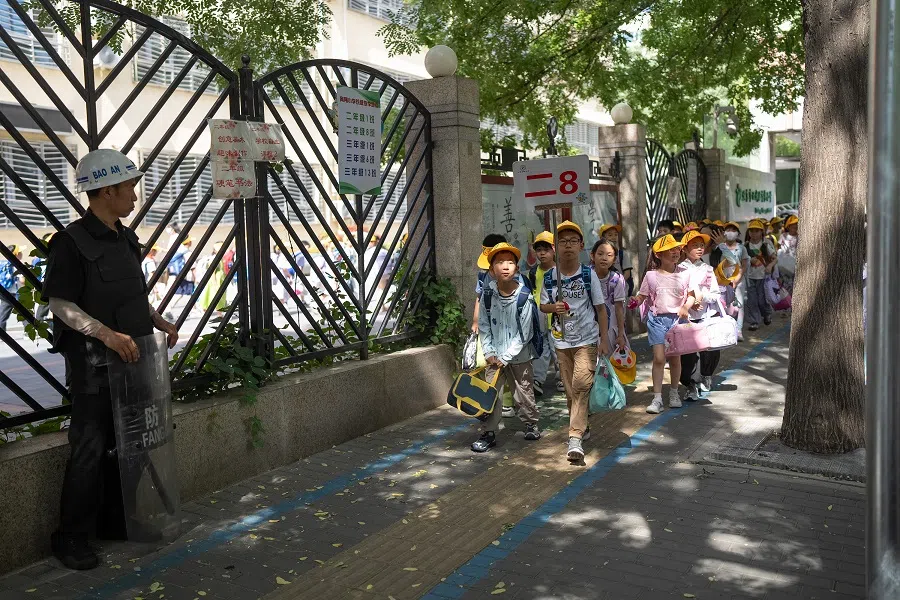

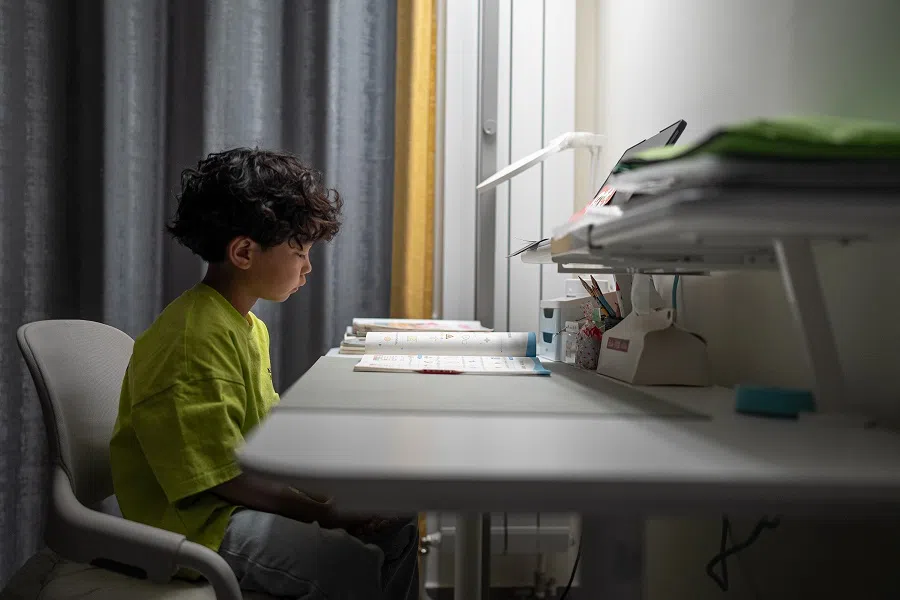
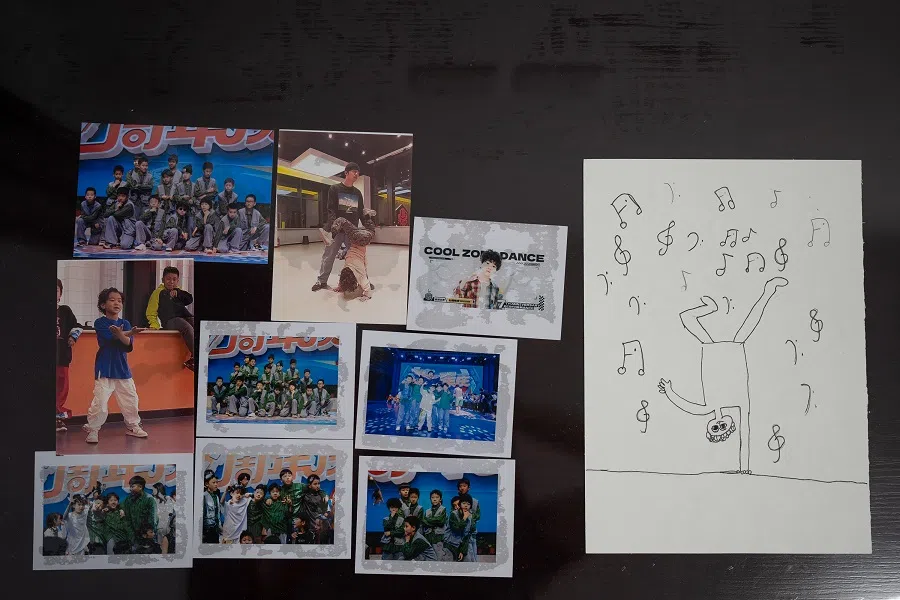
For his course in Changsha, the focus was on urban dance instead of breaking. Ran believes urban dance requires less laborious practice than breaking. Students can learn to perform an urban dance within one lesson so long as they can master the movements. While his classmates could only do the routine movements, Zhuangzhuang’s breaking background means he already knows how to freestyle.
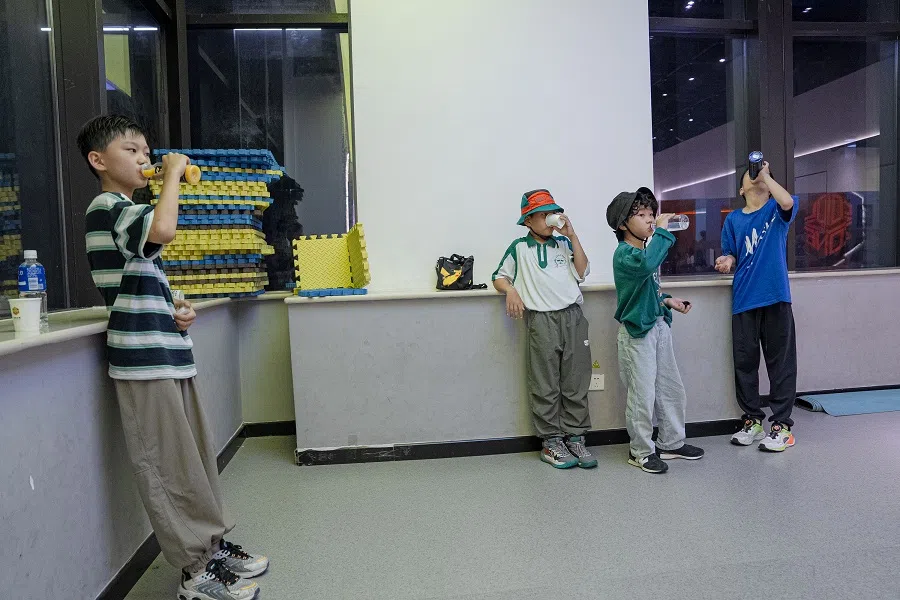
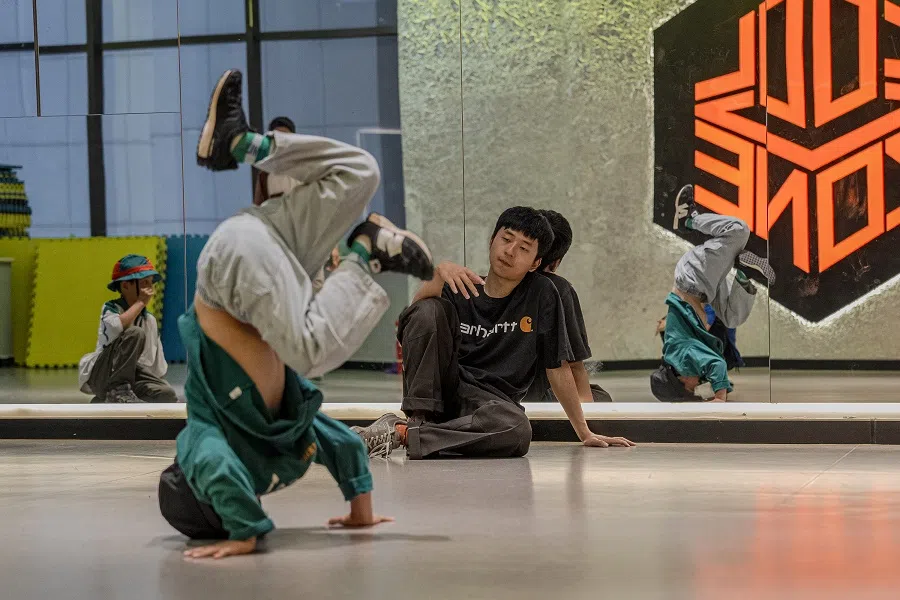
That was a proud moment for Zhuangzhuang after his years of breaking training. When asked what it is about breaking that most attracts him, he said, “I can use my secret moves to catch my opponent off guard during battles.”
Su Jie, 27, Beijing
Zhuangzhuang’s coach, Su Jie, was born in the 1990s. He started breaking about 12 years ago.
Like most of his peers who like street dance, his family strongly opposed it. In his opinion, an important reason is that his family thinks he cannot make a living out of breaking. More than a decade later, the breaking market and environment in China are better developed, and he has become a coach.
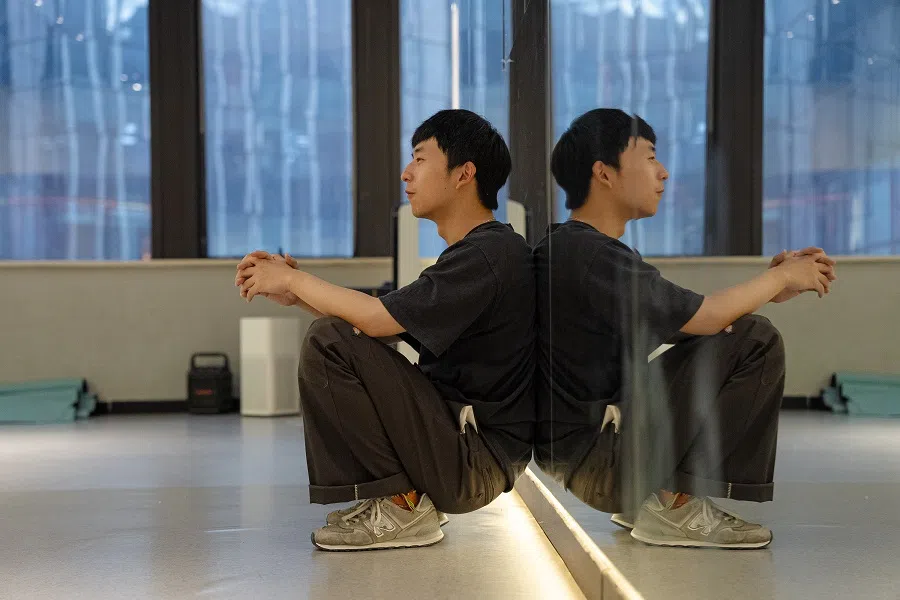
However, Su reminisces about the earlier days, which he feels were more authentic and less commercialised. With fewer dance studios around then, he often practised on rooftops. Drawn to breaking because he thought it was cool, Su was motivated by a simple desire to master the moves and impress others with his skill.
Like eating, breaking is now a part of Su’s everyday life. Other than conducting lessons in the dance studio, he practices for about four hours every day. Talking about the airflare, a challenging breaking power move that he has been practising for the last two years, Su said, “I have practised to the point where I am infinitely close to getting it right, but the scary thing is that it is still only infinitely close and I have not succeeded.”
“... To us, dancing is more than a sport, it is also an art! Turning it into an Olympic event makes us mere athletes.” — Su Jie
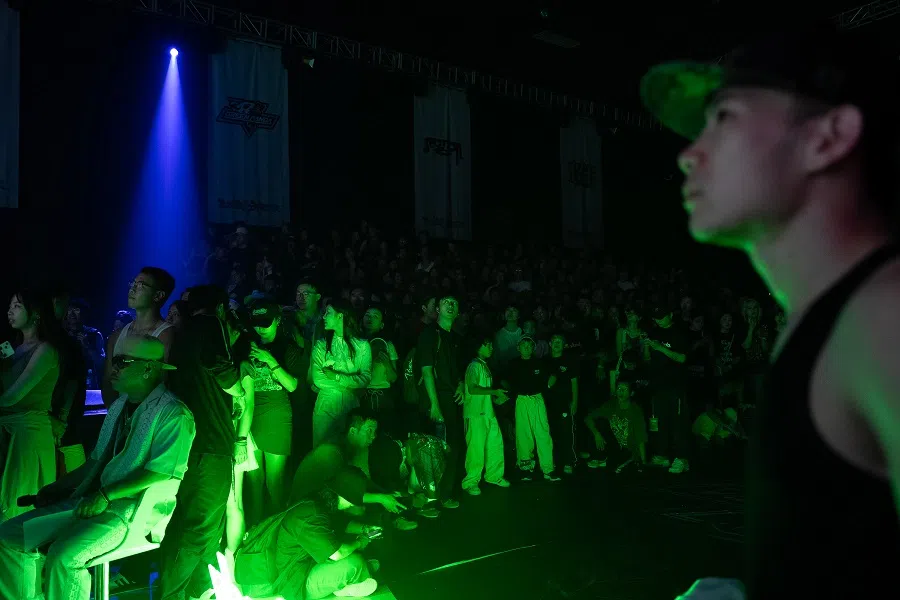
When breaking became an Olympic sport, Su Jie was not even 20 years old. He shared his reaction to the inclusion, “Actually, as an underground dancer at that time, I was somewhat opposed to it, just like many others. To us, dancing is more than a sport, it is also an art! Turning it into an Olympic event makes us mere athletes.”
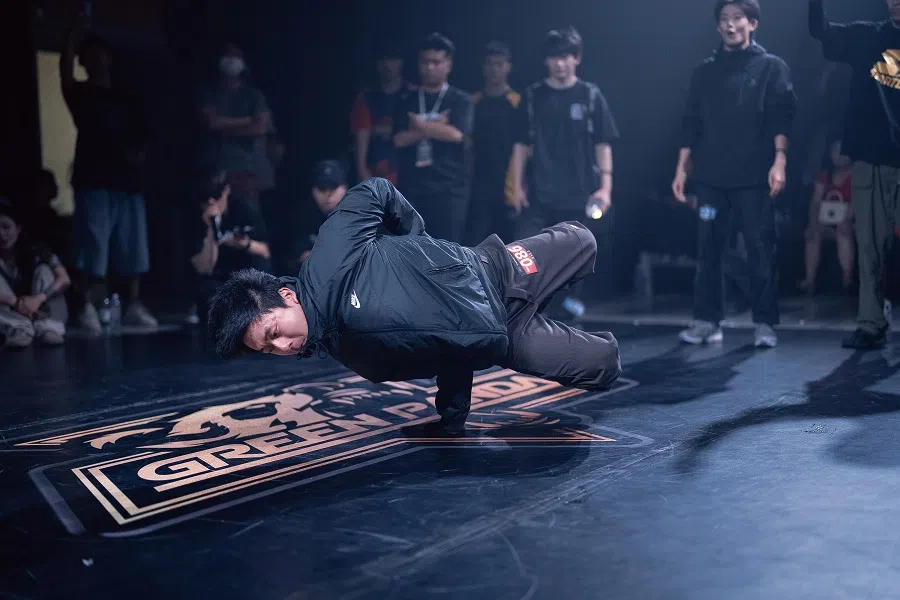
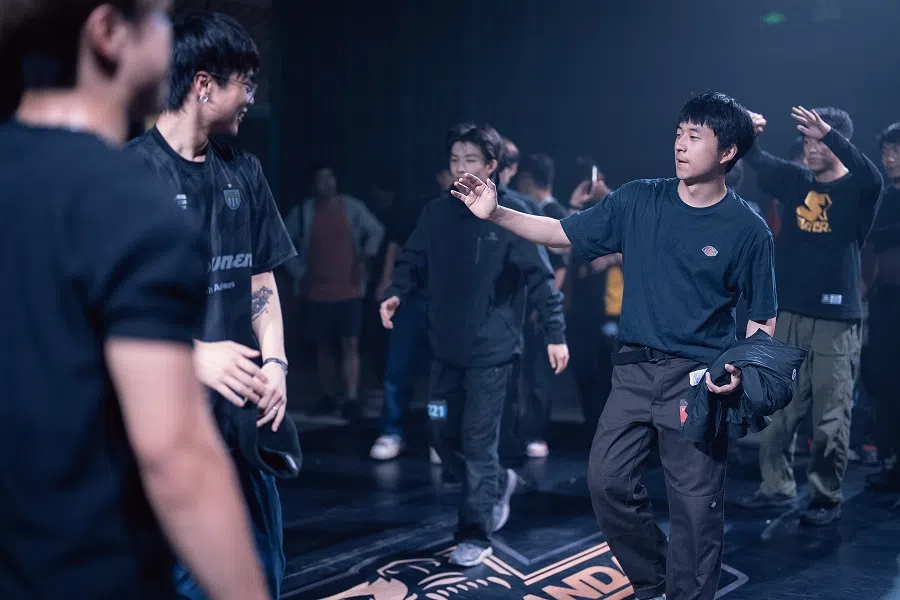
Undoubtedly, the inclusion of breaking in the Olympics also gave Su more coaching opportunities. Based on his experience as a coach, physical training is the main motivation for parents to enrol their children in breaking classes.
After the children enter secondary school and have a better idea of what they want, those who enjoy breaking would continue, while the rest would gradually stop showing up. Su recalls a child who particularly disliked breaking. When the child’s father told him to choose between dance practice and math practice, he chose the latter without hesitation.
For children passionate about breaking, the dance studio assists them in registering as athletes for official competitions. Those who become breaking athletes by the start of secondary school are often encouraged by their parents to take part in leagues. This is so that these kids can earn bonus points for the gaokao or secure university admission through the sports pathway, majoring in breaking eventually.
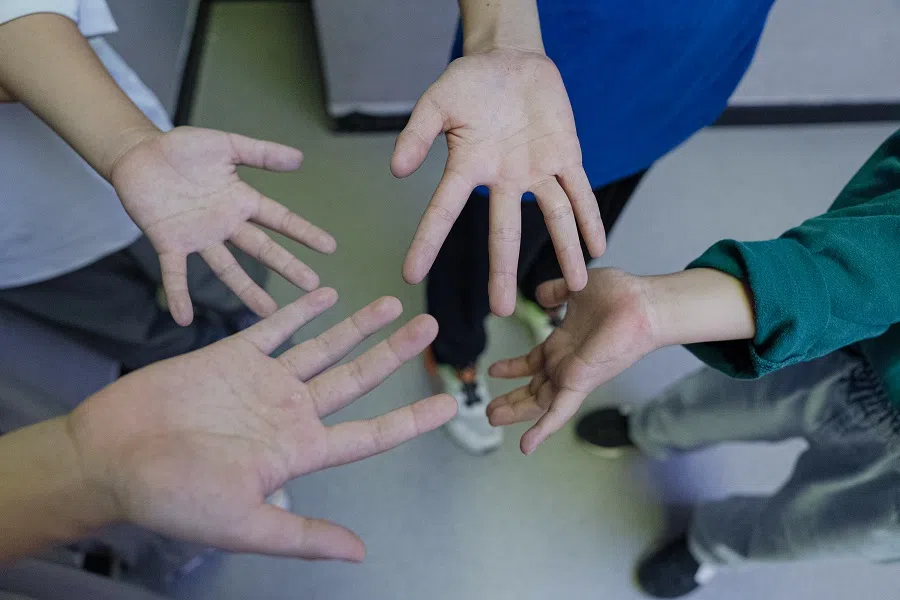
Niu Yiming, 10, Fuxin, Liaoning
Niu Yiming has been taking breaking classes for five and a half years and his palms are covered with calluses.
On 28 June, an unofficial breaking competition was held in Beijing. Even though Niu would be taking his final exams the following week, his mother, Liu Tingting, arranged for him to take two days off from school so that they could travel 600 kilometres from Fuxin in Liaoning to participate in the Beijing competition. Liu added, “When we go out to compete, I’d bring his schoolwork along.”
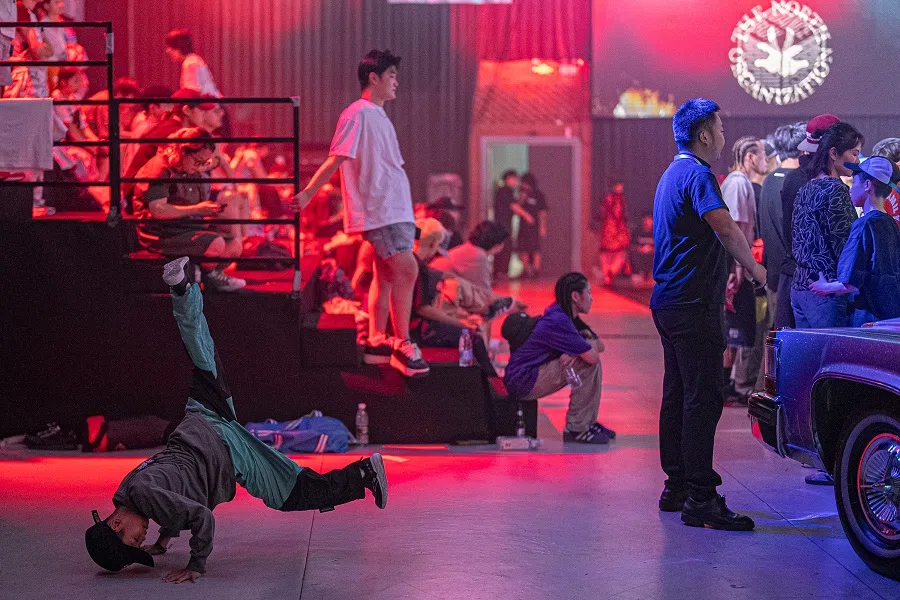
For Liu, the Beijing competition holds more value than some official ones. She explained that while official tournaments often attract participants focused on the Olympics, top breaking talents are more likely to attend unofficial events like the one in Beijing.
Liu was very pleased that Niu got through the audition and the preliminary rounds before stopping at the round of 16. For Niu, these unofficial competitions serve as valuable experience for honing his skills.
Niu achieved his best result thus far by coming in fourth in the Liaoning provincial breaking championship on 20 May. Prior to this, he won the title for a minor competition in Panjin.

Liu remembers the competition clearly because the victory gave her son a taste of winning. She shared, “I asked him whether his tears and sweat were worthwhile, and he said yes. After that, he seemed more committed and knew he had to train hard to achieve good results. Before that, he would cry when he didn’t want to practise, during competitions, or when he had stage fright. Many breaking moves require strength, so it is very tiring for him. Even though he makes them look easy now, there are injuries on his legs, arms, and shoulders, and calluses on his palms.”
The ultimate goal of such hard training is to make it to the national team and the Olympics.
Niu is already a registered athlete and the next step is to earn enough points through breaking leagues to qualify for the provincial team. For the ten-year-old, his best shot in the competitions that are limited to participants under 14, as adult contests are more competitive. Niu has four more years to do that.
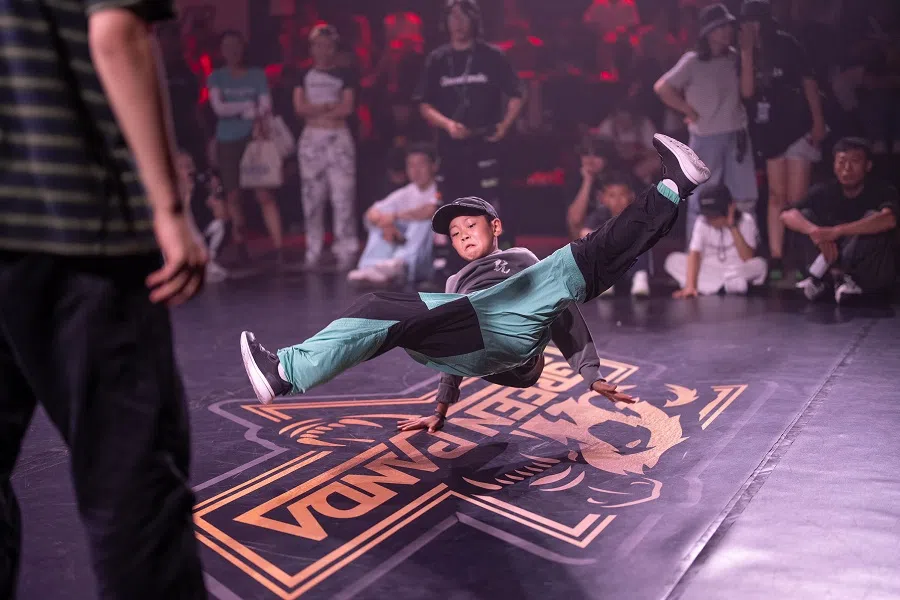
However, Liu is not especially certain that Niu will continue on this path as his education is also important.
For comparison, another student in his dance class only attends half a day of school every day and heads to the studio for training after morning lessons are over in school. In contrast, Niu only goes for dance training and trains till 9.30pm after he is released from school at 5.30pm on weekdays. On weekends, he practices from 2:30pm to 9:30pm. Besides his daily practice at school, Niu clocks more than 30 hours of weekly practice
Explaining her indecision, Liu said, “At times I worry that he has good academic potential and dancing is hindering his studies. Other times, I fear that he is overreaching and may lose out in both studies and dancing.”
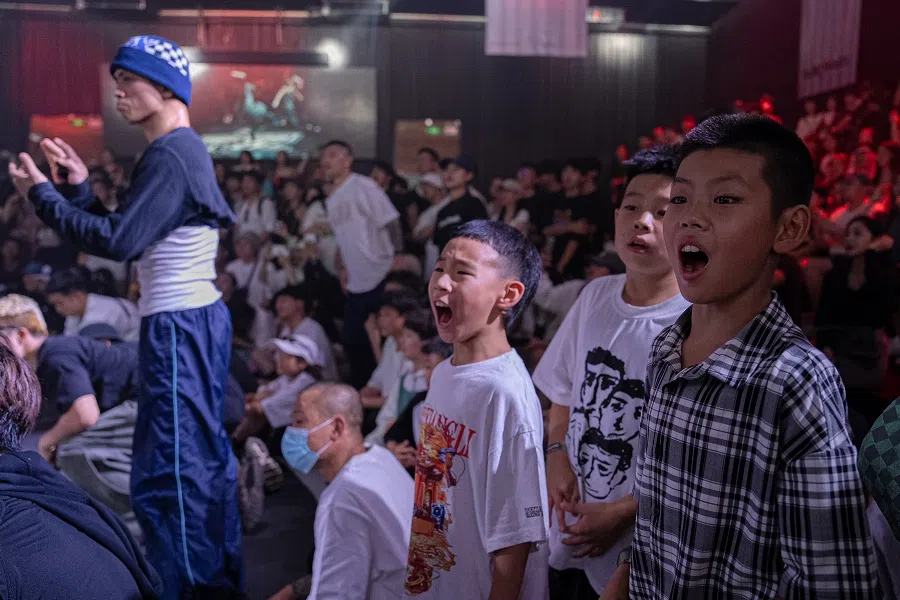
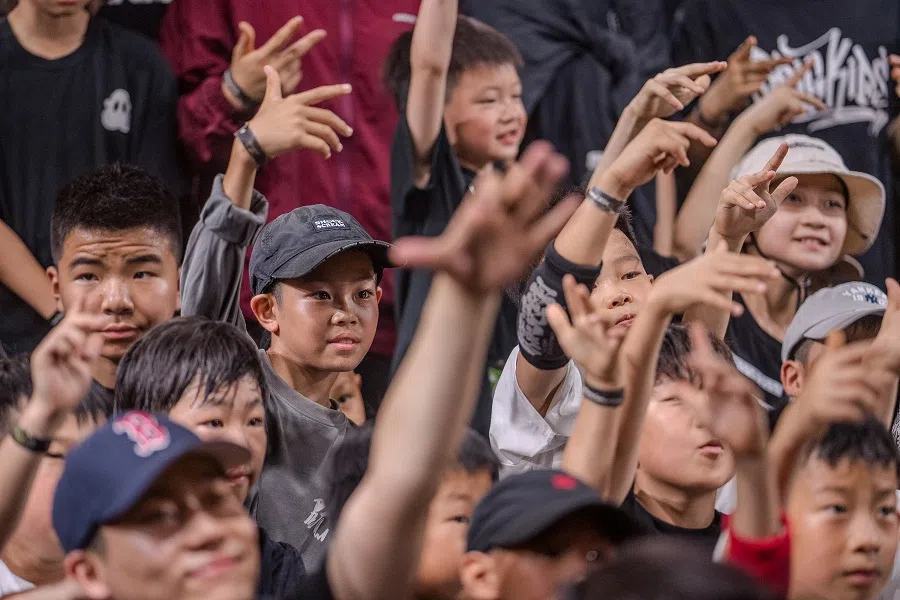
For now, Liu is trying to help her son cope with both because one thing is certain: if he fails to qualify for the provincial team, athlete certification would still add bonus points to his gaokao score or get him into college through the athlete pathway. Things would be different if he entered the provincial team because the intensive training would require him to attend school lessons online.
Niu started learning breaking in January 2019 when he was four and a half years old. There was a street dance studio on the same floor as the learning centre where he attended enrichment classes. In the beginning, Liu’s intention was for her son to pick up a hobby and get some exercise. As of now, she has spent more than 100,000 RMB on his dance training.
At the start, she was paying 300 RMB for him to attend seven lessons. In 2023, Niu went through a tea ceremony and became a formal disciple of his breaking coach. Liu then paid the coach a lump sum of 30,000 RMB and no longer needed to pay for tuition. In addition, her son receives personal guidance from the coach.
Other than training fees, there are competition expenses that range from 3,000 to 4,000 RMB each time. Registration fees do not cost much, so the bulk of such expenses is from transportation and accommodation.
The day after the Beijing competition, Niu returned to Fuxin to prepare for his school exams. Next, he will be taking part in a breaking competition in Fushun in August. There is another one in Chongqing, but the date has not been fixed.
“If you fail to seize this opportunity, you can’t blame others.” — Niu Yiming’s mother

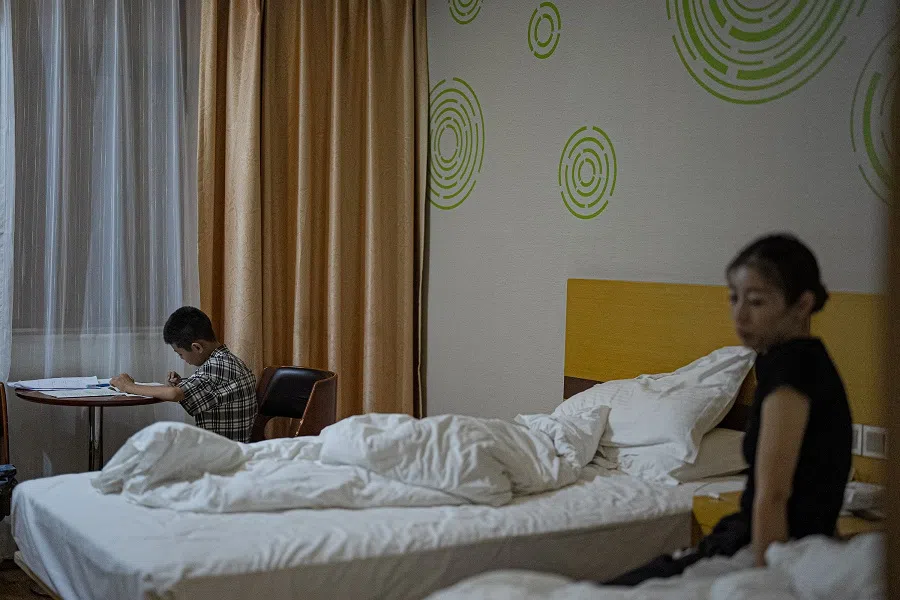
As breaking gains prominence in China, Liu notices its increasing significance just as her child, who is at the ideal age, demonstrates talent in it. She views this as a valuable opportunity for him, remarking, “If you fail to seize this opportunity, you can’t blame others.”
--------------------------------------------------
Zhou Na’s reflections:
Before this photo shoot, I knew nothing about breaking. Afterwards, I felt I was in love with it. I like its complete control over the body, the interaction with the music and the flamboyant, free and happy temperament it exudes — qualities I don’t personally possess. But this spur-of-the-moment enthusiasm is likely to run out once my palms turn red from all the floor work.
All three subjects in this story have dedicated themselves to breaking for several years to over a decade.
Through the dance studio owner, I met with breaking instructor Su Jie before his class started. Had I not interrupted him, he would have spent that time practising breaking for one to two hours.
One can tell that Su really loves breaking. Other than giving me an introduction, he also shared his observations that the approach to breaking has become too utilitarian. He was also full of praise for a 36-year-old office worker who had just started learning the dance purely out of interest.

Su introduced me to Zhuangzhuang, the youngest student in his class. In the dance studio, there is a photo of Zhuangzhuang at three and a half years old, just starting to dance. In the photo, Zhuangzhuang has baby fat and looks shy and soft. Now, he is eight years old and has become a cool kid. His dance pals joked that he would become an OG (“original gangster”) in a few years.
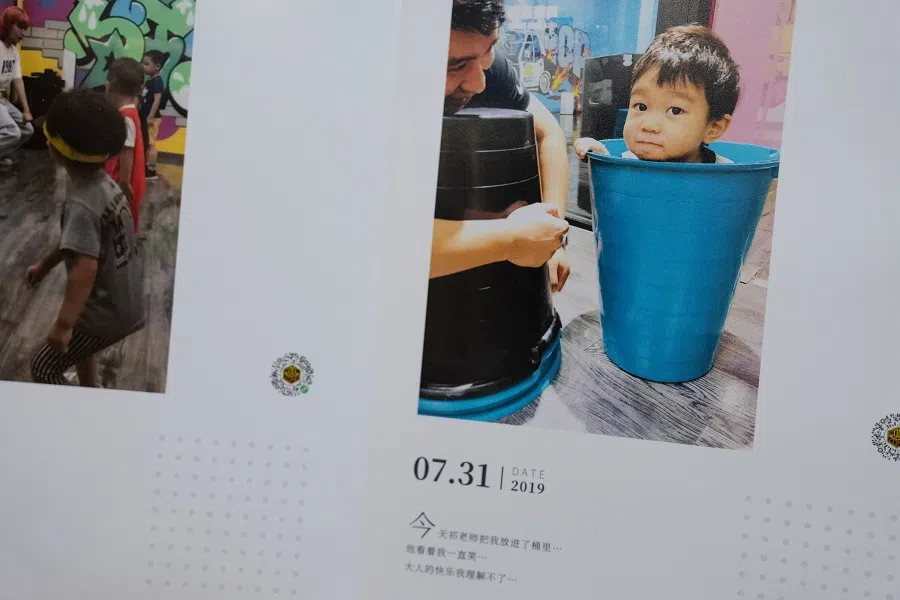
A few days later, Su participated in an unofficial breaking competition in Beijing. At the event, I met Niu Yiming and his mother. They had travelled 600 kilometres from Fuxin for the contest. Niu’s mum said that ideally, she wants him to make it as far as the Olympics...
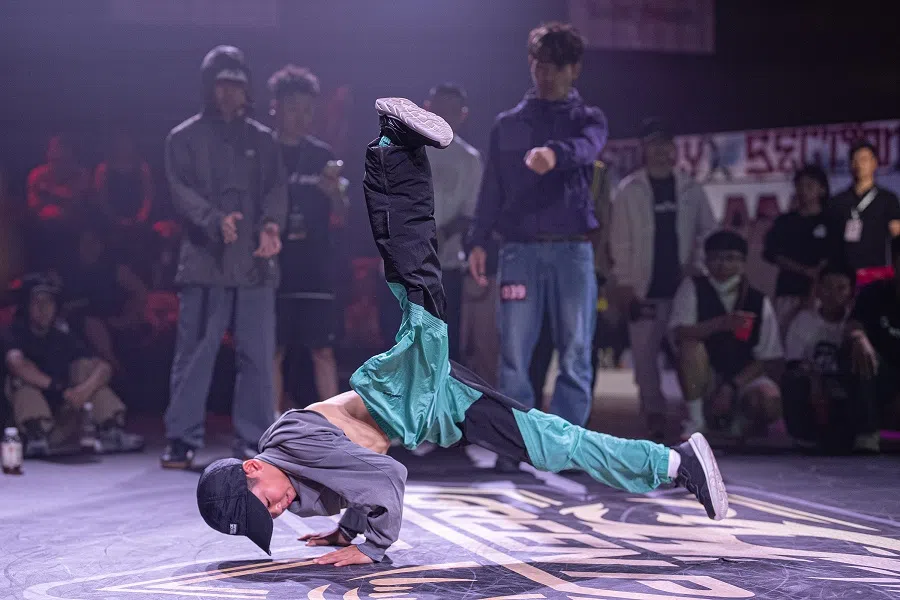
During my shoot for this story, I thought about whether I would want my one-and-a-half-year-old son to learn breaking? Maybe, I thought. I guess I am willing to try any method that can exhaust his seemingly endless supply of energy and make him eat more! But I cannot guarantee that I would not have high hopes for his breaking endeavours one day.





